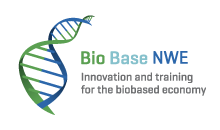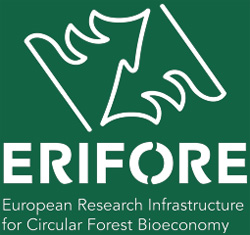Innovation Watch
For the duration of the project we collect useful information about technologies, innovation and processes. We share it with you to help improve and expand your practices
https://www.enabling-project.com/innovation-watch
For the duration of the project we collect useful information about technologies, innovation and processes. We share it with you to help improve and expand your practices
https://www.enabling-project.com/innovation-watch
The Enabling Coaching Activities, available through an online simple questionnaire provided via the website, will support biomass producers or the BBP industry for the uptake of emerging best practices and help the applicants figure out more details about the bio-economy and its component. The applicant can ask about biomass, bio-based products, innovation & technologies, scientific papers, EU and national laws, and much more.
In ENABLING we collect best BBP (Bio based Products and Processes) practices, from inside and outside Europe, that are wholly or partly transferable to other regions, or serve as an inspiration for partners in the value chain. An interactive web based tool will provide easy to find information on the best practices identified.
BEST PRACTICES ATLAS – CLICK HERE
RUBIZMO will identify business models with high potential for empowering rural communities to take advantage of the opportunities arising from improved value chain optimisation. It will directly supporting the creation of sustainable jobs and growth in rural economies, supporting a multi-actor approach for generation of shared-value. Ultimately, the project looks to contribute to rural development in Europe, supporting the Europe 2020 Strategy for Smart, Sustainable and Inclusive Growth, as well as supporting Regional and Rural Development policy.
To do this, the project will identify innovative business models (developed or identified in existing projects under FP7, H2020, Interreg, Central Europe, etc.) with a significant potential to support modernisation and sustainable growth in rural economies, and relevant to the food sector, bio-based value chains and ecosystem services. Business models with the potential to contribute to the modernisation and sustainable growth of rural economies will be selected, packaged and classified according to their nature, comprising technologies, services, business support structures, financing mechanisms, etc.
This will result in the creation of four practical, user-oriented tools:
– Virtual library of business cases, to inspire and inform potential entrepreneurs about business opportunities;
– Guidelines on creating favourable conditions for the deployment of innovative business models, to help public authorities and rural networks create adequate framework conditions for rural innovation;
– Toolkit for clustering and network development in rural areas;
– Transformation support tool, to help individual entrepreneurs understand which business models are best adapted to their situation, and how to go about implementing change.
The project will then prepare Europe-wide upscaling and replication in rural areas using real life cases, taking account of the complexity of transferring value chains.

This factsheet aims to create awareness about the challenges in the cooperation between actors in the bioconomy’s value chain; This factsheet focuses on the cooperation between Industry and feedstock suppliers.
This factsheet aims to communicate the trends and barriers faced by the bio-based industry.
The main aim of this project is to support the sustainable delivery of non-food biomass feedstock at local, regional and pan European level through developing strategies, and roadmaps that will be informed by a “computerized and easy to use” toolset (and respective databases) with update harmonized datasets at local, regional, national and pan European level for EU27, western Balkans, Turkey and Ukraine.
It will do so by comparing and making use of the most recent relevant information from recent and ongoing EU projects by a set of carefully selected validation case studies and in concise collaboration with key stakeholders from policy, industry and markets.The project fits under the overall umbrella of the Europe 2020 strategy for the building of a bioeconomy, as well as the targets for deployment of renewable energies and reduction of greenhouse gas emissions.
The project will build up a concise knowledge base both for the sustainable supply and logistics of nonfood biomass (quantities, costs, technological pathway options for 2020 and beyond), for the development of technology and market strategies to support the development of a “resource efficient” Bioeconomy for Europe.
This includes industrial processes (i.e. bio-based industries) for manufacturing biomass-derived goods/products as well as energy conversion, both for large scale and small scale units.
The research work will be organized in three individual but strongly interrelated Themes:
Theme 1 will focus on methodological approaches, data collection and estimation of sustainable biomass potentials, resource efficient pathways and optimal logistical supply routes as well as will develop the computerized toolset.
Theme 2 will make use of the findings of Theme 1 and develop a Vision, Strategies and an R&D roadmap for the sustainable delivery of non-food biomass feedstock at local, regional and pan European level.
Theme 3 will validate the findings from Themes 1 and 2 and ensure the project outreach.

ICT-BIOCHAIN brings leading experts and support networks to develop Digital Innovation Hubs within ready-made test bed bioeconomy regions to examine opportunities for ICT, IoT and Industry 4.0. to increase the efficiency of high potential value biomass supply chains. In 2016, the EU selected 6 “”model demonstrator regions”” to lead the way towards sustainable chemical production.
Within ICT-BIOCHAIN, two of these high potential Model Demonstrator Regions, South East Ireland and Andalusia, will serve as test bed locations for the development of digital innovation hubs for biomass mobilisation.
The competence centres will provide access within hubs to the best knowledge, information and technology to promote opportunities for ICT, IoT and Industry to be integrated into biomass supply chains.
This will support the development of the EU bioeconomy by facilitating greater availability of competitively priced and sustainable biomass. ICT-BIOCHAIN will build on the work done in improving forestry biomass supply chains through integration of ICT tools, transferring state-of-the-art and new ICT, IoT and Industry 4.0 solution to region specific biomass supply chains.
To ensure commercial opportunities are realised, project will build on ongoing regional bioeconomy developments and opportunities identified in existing Investment Readiness Analyses carried out for the Model Demonstrator Regions.
To ensure consistency of regional biomass data sets, the ICT-CHAIN platform will build upon previous data sets tested within the Scottish Model Demonstrator Region. Once region-specific opportunities are identified, value chain coalitions of multi-actors will be developed through intensive knowledge transfer activities.
Finally, the project will build networks with other bioeconomy regions, providing a roadmap and training to allow further replication of digital innovation hubs for the biobased sector in Europe.
![]()
The ERIFORE will realize the European potential to consolidate its place as a world leader in biomass based research and innovations. ERIFORE builds on a new firm alliance aiming to establish open access distributed forest bioeconomy research infrastructure across Europe enabling scientific discoveries to be transferred to new business models, novel products and services enabling sustainable growth. The research infrastructure will focus on topics supporting Circular Forest Bioeconomy concepts starting from fundamental teaching and knowledge sharing to high level research laboratories and large scale piloting facilities.
This two-year action will be carried out by 11 European research organisations, 2 universities and a SME. The main objective of ERIFORE is to facilitate development the Circular Forest Bioeconomy field towards the following overall targets:
The main deliverables of ERIFORE are the following:
The suggested future European research infrastructure will then facilitate the development towards enhanced utilisation of renewable raw materials and renewal of established European process industry.

ENABLING is the initiative of 16 partners in 13 EU and associated (IL, NO) countries. The main goal is to support the spreading of best practices and innovation in the provision (production, pre-processing) of biomass for the BBI (Bio-Based Industry).
In particular, ENABLING aims at creating appropriate conditions for the development of efficient biomass to BBPs (Bio-Based Products and Processes) value chains.
The consortium’s vision is that Europe bears a huge potential for optimising the supply of biomass into innovative bio-based processes and products.
Upscaling biomass production and pre-processing, and combining streams towards the BBPs with those of more traditional bioenergy chains would enhance at least three interlinked types of impact. a) biomass production gains scale to meet higher demand in both sectors (bioenergy and the BBI); b) the reinforcement of biomass supply for the BBI benefits smaller BBI players, helping them diversify and consolidate biomass input sources; c) reinforcing the biomass and BBPs linkages may contribute to job-creation, due to the increased need for specialised workers.
To realise such potential, ENABLING also anticipates its longer term exploitation pathways. In the intention of the consortium, the project should aggregate and engage partners for the establishment of a permanent innovation brokerage platform, likely to become in the future, one of the main marketplaces and innovation transfer accelerators at European level.
In this sense, the project organises its work around two building blocks: one relates to animating the stakeholders (on the farming and BBPs sides), identifying best practices, turning them into easy to access content (in the EIP format) for their potential users and providing stakeholders with coaching and guidance on innovation. The other one looks at future developments, with the consolidation, in a self-sustainable way, of the innovation brokerage platforms after the end of the EU funded initiative.

